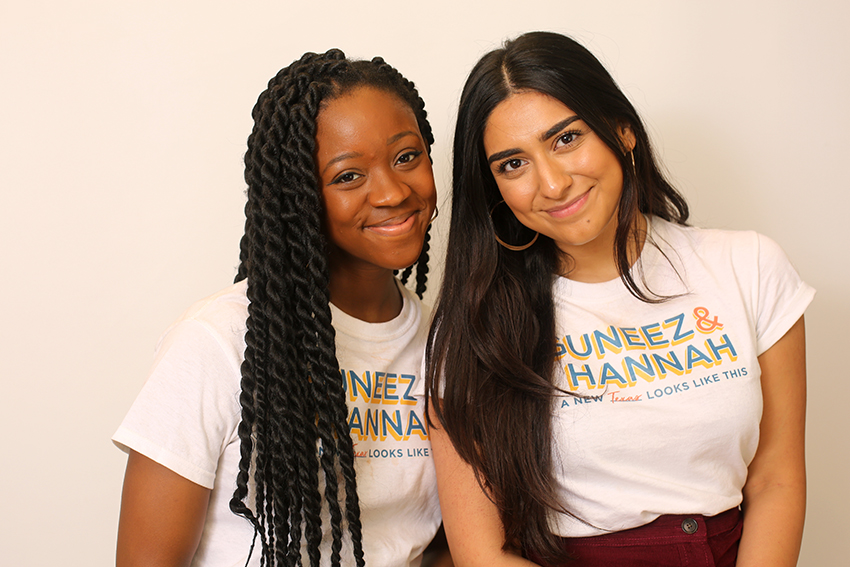Student body president candidate Guneez Ibrahim released a message on her social media platforms Saturday addressing the way she and her running mate Hannah McMorris were harassed throughout their campaign.
The post came one day after the Colton–Mehraz executive alliance was announced winner of the Student Government election. As of Sunday, however, the SG Supreme Court has nullified the results of the election, pending approval from the Dean of Students.
In the post, Ibrahim said she was called a terrorist and a Nazi, and was accused of being anti-Semitic and anti-white because of social media activity by the official campaign Twitter account and past tweets by McMorris. Ibrahim also said she was stalked, her family was threatened and she was told she should commit suicide.
“Why? Because we spoke up. Because we tried to stand up for minorities in a way that has never been done on this campus,” Ibrahim, a sociology and design senior, said in the post. “It has made us utterly miserable, a constant reminder that our experiences are relentlessly invalidated in a society where women and people of color are second tier.”
Days before the results of the SG election were announced, McMorris, a journalism and African and African diaspora studies junior, shut down her Twitter account in an effort to avoid harassment. She has since reactivated her account and placed it in private mode.
Many of the posts came in response to year-old tweets that surfaced where McMorris described daily frustration resulting from interactions with white people and disagreement with the culture surrounding Greek life.
While SG elections are “infamous for their fury,” Ibrahim’s post also said the way she and McMorris were treated is not normal and is not something that should be casually shrugged off.
“I think people going in tell you that these campaigns are toxic, and you can try to brace for impact as much as you want, but this I wasn’t prepared for,” Ibrahim told The Daily Texan. “This school just has a long way to go. We like to claim that we are a really diverse campus, that we are a really inclusive campus, but I think what’s come to the surface in the past two weeks is that that’s not the case.”
Despite crediting the University for shaping her into the person she is today, Ibrahim said if students really want to see change, then they must hold it accountable for creating an environment where not everyone feels welcome.
“It’s never easy to be critiqued as an institution or on an individual level,” Ibrahim said. “But, in my mind, if you love something then you want it to improve. The only way we experience growth and for an institution is to flourish is if the people in that system are critiquing it.”




















